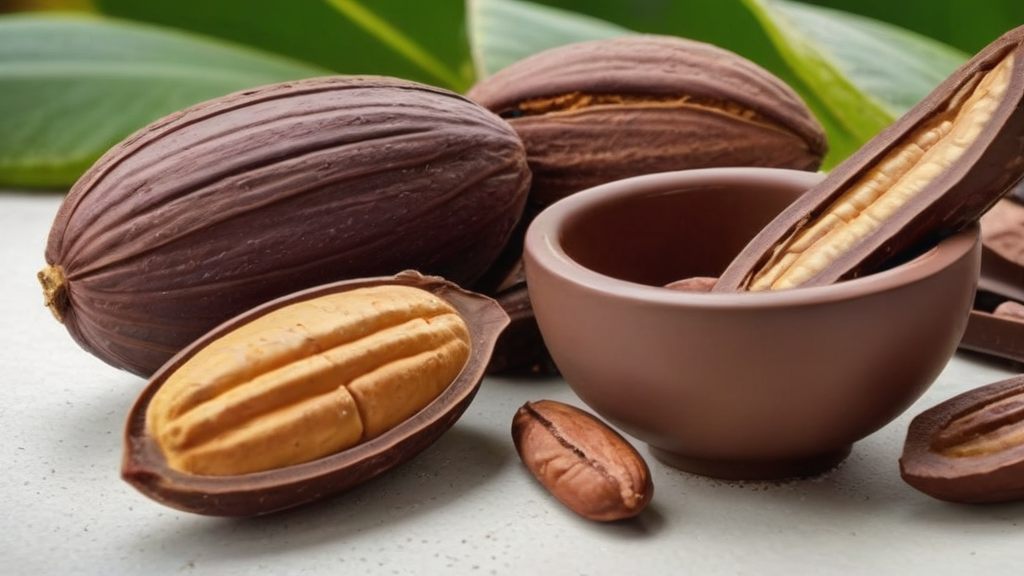Introduction
Chocolate is a very popular sweet all over the world, but did you know that its origin and history are fascinating? In this article, we will explore the exciting world of cocoa and discover how it becomes the delicious chocolate we enjoy so much.
The origin of cocoa
Cocoa is the main ingredient in chocolate and is obtained from the cocoa plant, Theobroma cacao. This plant is native to the tropical regions of Central and South America, and its cultivation has thousands of years of history [[1]]. The first to cultivate cocoa and use it as a raw material for chocolate were the indigenous peoples of Mesoamerica, such as the Mayans and the Aztecs [[1]]. For the Aztecs, cocoa was an essential ingredient to make their famous drink called xocolātl, a sacred drink and considered a luxury [[1]].
The chocolate making process
The chocolate making process has several phases. It all begins with the harvest of ripe cocoa pods, which are collected from the cocoa tree. Next, the cocoa seeds are extracted, which are used to make chocolate [[1]]. These seeds undergo a process of fermentation, drying, roasting and grinding to obtain a dense paste called cocoa liquor, which contains cocoa butter [[1]].
The cocoa mass is heated and mixed (conched), and ingredients such as sugar, milk powder or emulsifiers are added, depending on the recipe. The mixture is then refined to a smooth texture, cooled and heated, and poured into molds to solidify into the desired shape. This is how chocolate bars, chocolates and other sweets are obtained [[1]].
The invention of chocolate
The invention of chocolate is a process that spans thousands of years and is the result of the contributions of different cultures and people over the centuries. It began as a cocoa drink in Mesoamerican civilizations and transformed into the chocolate we know today [[1]].
Cocoa arrived in Spain in the 16th century, when Christopher Columbus made his first voyage to America in 1492. After the arrival of the Spanish conquistadors to America, the maritime trade route to Europe was opened, and chocolate was consumed as a drink. luxury by the Spanish aristocracy [[1]]. During the time of colonization, sugar and milk were added to chocolate, transforming its flavor and texture [[1]].
With advances in production and technology, solid chocolate began to be manufactured in the 19th century. Joseph Fry, in the United Kingdom, was the producer of the first chocolate bar in 1847, and Rudolphe Lindt developed the conching process to improve the texture and flavor of chocolate [[1]].
white chocolate
White chocolate is a special variety that does not contain cocoa mass. Its characteristic white color and sweet, creamy texture are due to the absence of cocoa solids in its composition. It is mainly made with cocoa butter, sugar and milk [[1]]. Although it does not have an origin associated with a specific region or culture like traditional chocolate, it began to be marketed in the 1930s and has since gained much popularity [[1]].
Chocolate Museums in Spain
If you are interested in the world of chocolate and want to know more about its production, origin and history, we recommend visiting the Chocolate Museums in Spain. Some of the most important are:
Chocomundo (Seville)
Address: Calle Alfajor, 10, 41560 Estepa (Seville). Telephone: 955 914 525.
Comes Chocolate Museum (Sueca, Valencia)
Address: c/Sant Josep nº 29 C/ Sant Josep, 29, in Sueca (Valencia). Telephone: 96 170 19 42.
Valor Chocolate Museum (Villajoyosa, Alicante)
Address: Carrer Colón, 57 (La Vila Joiosa, Alicante). Telephone: 966 50 83 12.
Chocolate Museum (Barcelona)
Address: Calle Comerç, 36 (Barcelona). Telephone: 93 268 78 78.
Astorga Chocolate Museum (Astorga, León)
Address: Avd. de la Estación 16 (Astorga). Telephone: 987 616 220.
